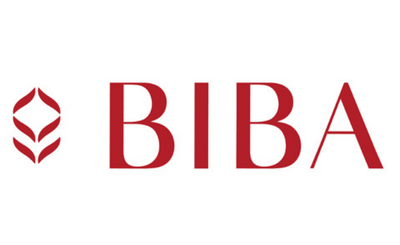Coding, controversy, and campaign: WhiteHat Jr.’s rise to prominence and the subsequent descent
Author : Samar Tyagi.
After being acquired by edtech titan Byju’s, WhiteHat Jr. should have had an easy journey, but it was rocky.
The fastest idea-to-exit success story was produced in the third-largest startup ecosystem in the world when Byju’s, the most valuable edtech firm in the world, acquired WhiteHat Jr (WHJ), a platform for coding coaching, for a staggering $300 million in August 2020.
WhiteHat Jr. was established in early 2019 by Karan Bajaj, a former South Asia director for US entertainment giant Discovery, Inc. The company increased over the next 1.5 years, reaching USD 150 million in annual recurring revenues by mid-2020. It is sometimes credited with creating this sector in India’s rapidly expanding edtech market as one of the first firms to concentrate on teaching coding (programming languages) to children between the ages of 6 and 14.
WHJ now has solid backing and brand positioning in the Indian online education market thanks to the merger with Byju’s, the USD 12 billion edtech giant. The subsequent journey, which ought to have been trouble-free, turned out to be bumpy.
Five months later, WHJ has become one of the most derided brands on social media. The coding community has been particularly critical of the company’s aggressive marketing strategy from last year and claims it has censored critical articles, videos, posts, and comments.
The Storm’s Eye
Once WHJ was under Byju’s wing, it actively began promoting the early 2020 advertising campaign across social media platforms. It eventually encountered outrage from netizens for excessive exposure to its digital ads.
Poonia saw one of those advertisements on Instagram in late August. It highlighted Wolf Gupta, a nine-year-old boy who bagged a $20 million (INR 1.5 billion) package from internet giant Google after mastering coding.
Similar lofty claims were made in the other campaign advertisements, which showed how mastering coding and AI abilities might help young people land lucrative careers in the tech industry. In addition, the company’s marketing materials included images of well-known people like Bill Gates, Sundar Pichai, and Barack Obama, giving the impression that they were endorsing the platform, even though this was untrue.
Poonia claimed in an interview that he intended to learn more about Wolf Gupta after becoming interested in him after noticing this advertisement on Instagram.
To raise awareness, he stated, “I uploaded a YouTube video on Wolf Gupta and the fraudulent statements the company made about him getting a multi-crore job.” And because I did my part, I figured I’d leave it at that.
However, Poonia’s Youtube video was removed after a few days owing to copyright violations. He re-uploaded it, and the outcome was the same. Then, to his astonishment, both accounts were suspended shortly after he posted about it on Reddit and Quora.
It got to the point where, according to Poonia, if she uploaded a video to WhiteHat Jr. on YouTube, it would be taken down within 30 to 45 minutes.
His two YouTube channels, one Twitter account, two Reddit accounts, one Quora account, and over a dozen videos and a few LinkedIn articles had been deleted by the middle of October. These articles discussed, among other things, WHJ’s pushy sales tactics, overstated claims, purportedly fraudulent reviews, and incompetent professors.
Poonia claimed to have “strong proof against the corporation and tried contacting media and YouTubers,” but few appeared receptive.
The evidence he possessed was WhiteHat Jr.’s Slack chat history, which contained messages from its online reputation management (ORM) team. Poonia refused to say where he obtained those messages. WHJ tweeted about the company’s making apps for kids and how certain executives made sexist remarks about female teachers, according to his internal chat history from Slack.
The requirement to take a position
Founder and CEO of WhiteHat Jr., Karan Bajaj, claimed that the business discovered several of its marketing creatives were problematic last June and removed them following an internal assessment. Although many others, such as those showing Wolf Gupta and another fictional character with a similar story, Ryan Venkat, landing a comfortable job at Google, were still in circulation.
In September and October, WHJ rolled back the contentious campaign after Poonia discovered them and questioned the validity of those assertions. But by the time the corporation began to see the outcry from the hundreds of social media users and members of the coding community who came out in support of Poonia, it was already too late.
Another time, smaller rival Tekie alleged that a WHJ employee impersonated a grade 6 kid and illegally recorded content from its platform in October 2020. WHJ promptly refuted the claim.
According to detractors, the main problem with WHJ is that it capitalises on parents’ worry that their kids may miss out on lucrative coding careers. However, according to Bajaj, these claims—along with others like submitting false ratings, developing proxy applications on behalf of students, selecting instructors with insufficient qualifications, and having a toxic work environment—are “extremely erroneous and inaccurate.”
Bajaj believes that since WhiteHat Jr. gained attention for being bought by Byju’s for a sizable quantity of money, it has become “a soft target” for individuals.
The root cause and effects of the issue
Their goal was to inform parents and children about how being a member of WhiteHat Jr. may alter a child’s life.
Their message was spot on, but how they delivered it was problematic.
The other issue was that they precisely targeted young children. It was a misrepresentation when Google said in print and digital advertisements that a nine-year-old could learn to code and land a job there. People are against it for this reason.
Because these are the people whose children are likely to become its customers, the business needs to develop a better communication strategy.
These problems won’t, however, make investors less interested in Byju’s or the company.
According to WhiteHat Jr., they have succeeded in their goal because Byju’s name is no longer as frequently used as WhiteHat Jr.’s.
It is unclear whether WhiteHat Jr., which currently holds the top spot in the coding market and has five million registered users—of which 175,000 are pay subscribers—will be able to recover from the reputational damage it has sustained over the past five months by alienating India’s developer community.






